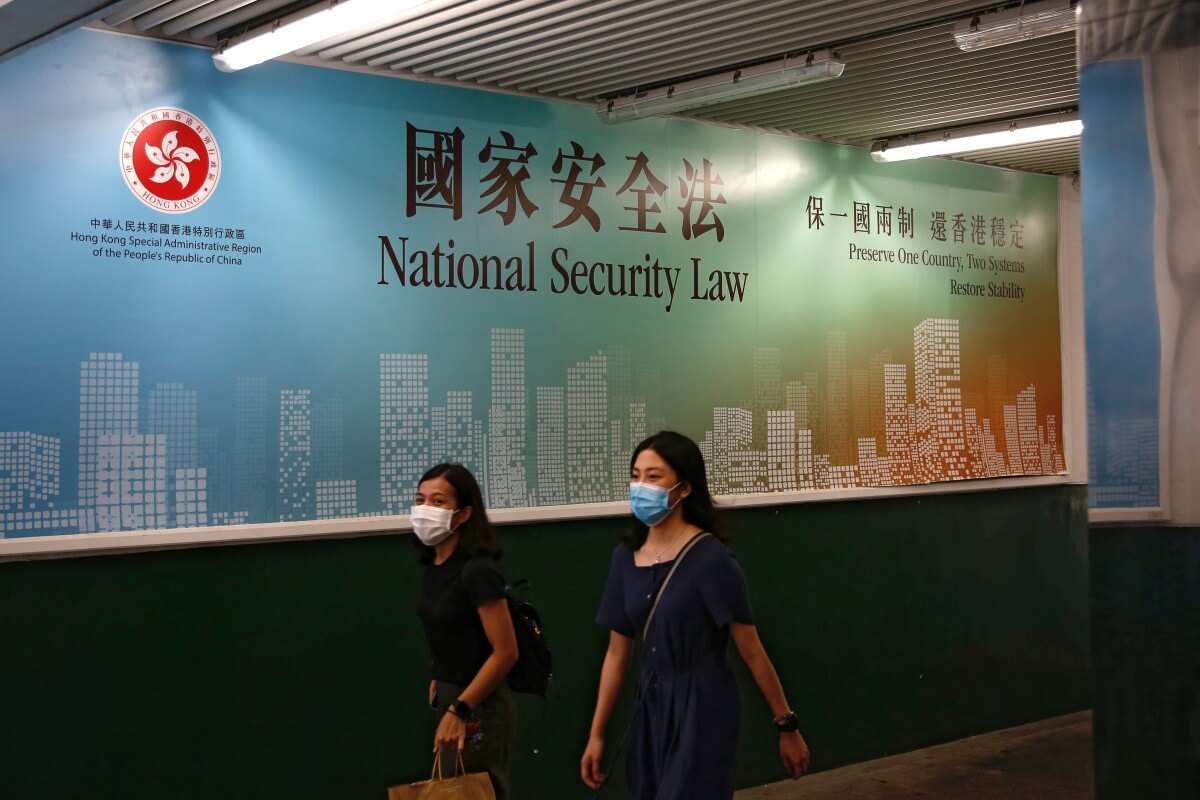Beijing has passed a sweeping national security legislation for Hong Kong; which critics say will destroy political freedoms and threaten Hong Kong’s identity in allowing China to strengthen its control over the semi-autonomous territory.
The Standing Committee of the National People’s Congress (NPC) unanimously passed the law on Tuesday morning, bypassing Hong Kong’s own legislature, and it is expected to come into force by July—the 23rd anniversary of territory’s return to Chinese rule. The draft of the law has not been made public yet, which has raised concerns among human rights experts and activists. Joshua Rosenzweig, head of Amnesty International’s China team, said in a statement:
“The speed and secrecy with which China has pushed through this legislation intensifies the fear that Beijing has calculatingly created a weapon of repression to be used against government critics, including people who are merely expressing their views or protesting peacefully. The fact that the Chinese authorities have now passed this law without the people of Hong Kong being able to see it tells you a lot about their intentions. Their aim is to govern Hong Kong through fear from this point forward.”
Also read: China Releases Details for Hong Kong National Security Law
China has repeatedly stated that the law is needed to tackle unrest and instability in the city that has become “a base of subversive activities” over the years, and rejects any criticism as interference in its internal affairs. According to some details revealed by Chinese state media previously, the law will see Beijing set up a national security agency in Hong Kong to “guide” the territory’s implementation of the law. It also grants Chinese security organs the authority to exercise jurisdiction over special cases that “jeopardize national security under specific circumstances”. Should discrepancies arise, the legislation will override Hong Kong law. Though Chinese authorities have claimed that the law will protect the civic rights of Hong Kong residents, critics remain unconvinced, given how similar laws are used in mainland China.
Also read: China Rebukes International Criticism of Proposed New Security Law in Hong Kong
Hong Kong Chief Executive Carrie Lam has not yet commented on the passing of the law. Opposition leaders, however, have criticized the legislation as a means to “suppress, oppress, frighten and intimidate Hong Kongers”. Japan called the move “regrettable”, and Taiwan has issued warnings for its citizens travelling to the city.
Tensions between the United States and China have also been escalating over this issue, as US Secretary of State Mike Pompeo said on Friday that America would impose travel restrictions on current and former Chinese officials who “were responsible for eviscerating Hong Kong’s freedom” and were “responsible for, or complicit in, undermining Hong Kong’s high degree of autonomy”. He did not name the officials who would be sanctioned. Responding to US actions, China said on Monday that it would impose similar restrictions on certain Americans with “egregious conduct relating to Hong Kong”.
In separate statements on Monday, the US State Department also said that it would end exports of U.S. military equipment to Hong Kong, while the Commerce Department said that Hong Kong would now be subject to the same types of controls on certain technology exports that apply to China. Pompeo said that this was done in order to protect US national security since the US could “no longer distinguish between the export of controlled items to Hong Kong or to mainland China”.
Image Source: South China Morning Post

